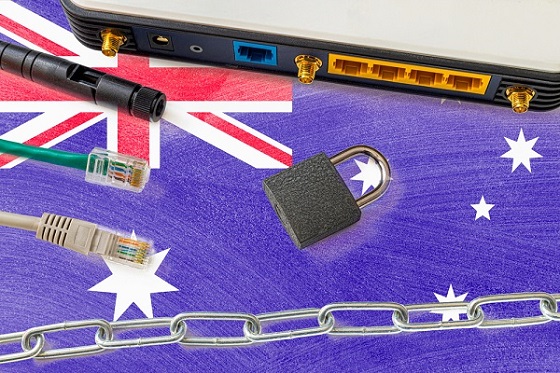Also Interesting
The Impact of High-Speed Internet on the Thriving Digital Economy

High-speed internet has dramatically reshaped the global digital economy, becoming an essential economic growth and innovation driver. Internet speeds have significantly improved over the last few years, particularly with the expansion of 5G networks and fiber-optic technology. By the end of 2024, the global average for fixed broadband download speeds reached nearly 180 Mbps, while mobile internet continues to advance, with countries like the UAE and South Korea achieving speeds of over 200 Mbps.
This rapid improvement enables businesses to operate more efficiently, expand their market reach, and tap into real-time data, creating a more interconnected global economy.
However, internet speed and accessibility vary by region. Developed nations in North America, Europe, and parts of Asia enjoy some of the fastest internet services. Countries like Monaco, Singapore, and Denmark consistently rank high for fixed broadband speeds, while the UAE and South Korea lead in mobile internet performance.
In contrast, regions like Sub-Saharan Africa and parts of South America are still catching up, with lower average speeds and more limited access. Despite these challenges, investments in 5G and broadband infrastructure are closing the gap, bringing faster internet to more underserved regions and allowing them to participate more fully in the global digital economy.
Economic Growth and Job Creation
The economic implications of high-speed internet are transformative, significantly contributing to global GDP. Research shows that the digital economy is growing faster than traditional sectors like agriculture and energy.
In developed nations, internet-based industries have driven around 21% of GDP growth over the past five years, a trend that continues to accelerate as businesses increasingly embrace digital platforms. The rise of internet-driven services has also sparked a surge in job creation, with estimates indicating that for every position lost due to automation, 2.6 new jobs are generated due to digital efficiencies and emerging sectors.
This economic stimulation is not confined to tech-focused industries alone. High-speed internet enhances productivity across various sectors, including manufacturing, transportation, and agriculture. In Europe, for instance, digitization is expected to boost agricultural productivity by 25%, while manufacturing in the U.S. and EU is projected to experience productivity gains of up to 30% in the next five years.
Additionally, seamlessly integrated tech-based sectors, such as the best online casinos Canada, illustrate the far-reaching impact of high-speed internet. These online platforms not only directly employ tech professionals in software development and cybersecurity but also drive growth in related industries like marketing, customer service, and financial technology, further stimulating the economy through indirect job creation.
Facilitating Remote Work and the Global Workforce
The rise of remote work is perhaps one of the most tangible benefits of high-speed internet. Enabled by faster connectivity, more enterprises are embracing distributed teams, accessing global talent pools, and offering flexible work arrangements. A Gartner survey revealed that nearly 47% of global business leaders plan to make remote work a permanent part of their operations. With this, organizations can operate seamlessly, regardless of geographic barriers, thereby decentralizing traditional office hubs and redistributing economic opportunities.
Beyond conventional office jobs, industries like healthcare and education have also seen a digital shift. Telemedicine, for example, is expanding healthcare access, especially in rural and underserved areas, where high-speed internet enables real-time consultations with specialists. Similarly, online education platforms are bridging gaps in learning, making quality education accessible globally.
Empowering Small and Medium Enterprises (SMEs)
High-speed internet is a game-changer for small and medium-sized enterprises (SMEs), enabling them to expand their market reach, reduce operational costs, and improve customer engagement. Traditionally, SMEs faced significant barriers to competing with larger firms due to limited resources and geographic constraints. However, with high-speed internet, these businesses can now operate globally, accessing e-commerce platforms and digital marketing tools that allow them to connect with customers anywhere in the world. In fact, research indicates that internet-enabled SMEs grow twice as fast as those that are not online. High-speed internet also facilitates the use of cloud-based services, enabling SMEs to streamline operations, automate processes, and reduce IT costs.
Advancing Digital Payments and Financial Inclusion
Another significant but often overlooked impact of high-speed internet is its role in advancing digital payments and promoting financial inclusion. Faster internet speeds have enabled the rise of mobile banking and digital payment systems, which are essential for millions of people, especially in emerging markets, who do not have access to traditional banking services.
The ability to transfer money digitally has had a transformative impact on local economies by promoting entrepreneurship and reducing barriers to accessing financial services. High-speed internet ensures that these digital financial services are more reliable, secure, and accessible to even the most remote regions, thereby fostering inclusive economic growth.
Final Thoughts
High-speed internet will continue to evolve and expand its influence on the digital economy. Emerging technologies such as AI, machine learning, and blockchain require significant computational resources and fast, reliable connectivity to function effectively. As these technologies mature, they will further integrate into various sectors, from financial services to government operations, creating new markets and business models.
For high-speed internet to reach its full potential, public-private partnerships will be critical in accelerating infrastructure development, especially in regions that remain underserved. Governments must also craft forward-looking policies that encourage innovation, ensure fair competition, and provide incentives for broadband investment.
Also Interesting
How to Streamline Your Car Sales in Toronto? The Pointer for Car Sellers

Many car owners doubt whether selling their property is worth the hassle they may face during sales. That’s reasonable because a car is not a small item, and you probably spent much on its purchase at some point and regularly invested in it to maintain it in good condition. Then, selling it for pennies is not your choice.
We went ahead and contacted Topcashforcars.ca, a company that is reputed for giving the highest cash prices for cars in Toronto. Their approach is straightforward and reduces hassle for sellers who want to sell their vehicles profitably without the complexities of dealing with customers.
Choosing the Right Counterparty Is a Key to Success
First, have you already decided where and to whom you can sell a vehicle? That’s your #1 thing to do. Typically, the choice is either selling autos to individuals who want to buy a second-market car to save some dollars or to specialized companies engaged in car buying. These companies are diverse enough and they often offer good conditions for a seller although their pricing is diverse too.
How can you get in touch with such buyers?
- For individuals who buy second-hand vehicles, you can search on big Canadian bulletin boards online and sometimes, on social networks.
- For the companies to deal with, Google is your best friend to ask for help. However, our consultants, Topcashforcars.ca also are among these buyers, so you can make it even easier and apply to them.
What is more beneficial for a car seller at this stage? We can surely say that dealing with car-buying companies considerably saves you time. The whole negotiation process can take a couple of hours, so you won’t wait long and remain under pressure of uncertainty.
Making It Lighting-Fast Is Possible
The previous tip leads to another one: you can sell a car in a lighting-fast mode. Just do some easy preps like its examination at the service station to consider what price can you claim for it and clean it up. This takes no more than a day if you have a good service station in your neighborhood and it helps clearly understand the price and the condition of your car.
Then, you can ensure you set a real price by using special online calculators provided by the same car-buying companies. It may take just a couple of minutes and you’ll get a precise calculation based on your vehicle’s type, age, model, condition, and specific features.
Getting Cash Instead of Bank Transfers or Checks Is Faster
One more thing you can do to sell your auto as fast as possible is to sell it for cash. Bank operations often take additional days to be processed. Thus, even if you are lucky enough to get in touch with a good buyer quickly, and even if you conclude a deal in a day or two, it’s not guaranteed that you get money to your bank account similarly quickly. Applying for cash transactions you avoid troubles with banks and extra commissions for the transaction too.
As you can see, selling a vehicle can be eating pears for you if you plan your sale and follow the tips we shared in this article.
If followed, these recommendations can allow you to easily sell your car and make a handsome return in the process. It is even more rewarding because time and energy has become invaluable and cash for cars, Toronto based companies and specifically Topcashforcars.ca, will ensure the vehicle is sold for the best price with little input from the owner. When selling a car, it is ideal to do enough research, plan and choose the right buyers so that the car selling process is fast and efficient.
Also Interesting
New frontiers in prostate cancer treatment with Actinium-225

Prostate cancer is one of the most widespread malignant tumors in men. The pathology is successfully
treated in the first three stages, when the tumor can be removed or destroyed by radiation, but the disease at the metastatic stage becomes incurable. Surgery is usually not performed in such patients, and the main methods of treatment are hormonal and chemotherapy.
At a certain point this treatment stops working. 177Lu-PSMA-617 – Lutetium radiotargeted therapy,
becomes the next stage of treatment. A less common method of radiotargeted therapy is the treatment of prostate cancer with Actinium-225. It allows for a good outcome even in patients who have not responded to Lutetium therapy. In addition, the possibility of combined use of Actinium and Lutetium as part of tandem therapy is being investigated.
Principle of the method
Prostate cancer cells express a protein called prostate-specific membrane antigen (PSMA), which is not found in other tissues. PSMA is a target for the radiopharmaceutical. Once injected into the body, the drug accumulates only in tissues with high levels of PSMA because it binds to this protein. This results in a selective effect on the tumor and its metastases with minimal side effects.
Various radionuclides can be attached to ligands that target PSMA. The first such radionuclide was
Lutetium-177, which was synthesized in Germany in 2010, and its efficacy was first confirmed in trials in 2015. The good results were subsequently confirmed in a large study involving 13 university hospitals in Germany.
In recent years, Actinium-225 has been used instead of Lutetium. It destroys cancer cells with alpha
radiation.
Advantages and disadvantages of Actinium-225
Lutetium-177 is still considered the mainstay of radiotargeted therapy for castration-resistant prostate
cancer. However, Actinium is also used in certain situations, usually in patients with advanced cancer who have not responded to Lutetium treatment or when the efficacy of 177Lu-PSMA-617 has decreased after several courses (cancer progression has resumed).
Advantages of Actinium-225 over Lutetium-177:
● More pronounced effect due to alpha radiation causing double-strand breaks in DNA strands
● Less toxic effect on bone marrow and hematopoietic function due to shorter recovery time
● Works even in cases where the cancer is progressing against the background of Lutetium therapy
However, it is worth considering the disadvantages of this method:
● Limited evidence base compared to Lutetium
● Higher incidence of side effects, especially dry mouth
Who is a candidate for Actinium therapy
Radiotargeted therapy with Actinium is considered a novel treatment. The technique is indicated for
patients with metastatic castration-resistant prostate cancer (MCRPC) who:
● Have received Lutetium radiotargeted therapy but have not responded to it
● Have responded to Lutetium radiotargeted therapy, but have stopped responding after several
courses of treatment
● As part of tandem therapy: when Actinium and Lutetium are used in reduced doses
In summary, Actinium therapy is one of the last treatment options. It is used when chemotherapy, hormone therapy, radiotargeted therapy with Lutetium, and possibly targeted therapy (in the case of BRCA mutations, which occur in 28% of patients with metastatic prostate cancer) have already been tried. In addition, the choice of treatment tactics takes into account the location of the metastases. In the presence of predominantly bone metastases and pain syndrome, radionuclide therapy with Radium-223 is preferred, and in the presence of predominantly organ metastases, radiotargeted therapy with Lutetium or Actinium is performed.
If you want to undergo innovative treatment in Germany, visit Booking Health website. Our team will find a clinic for you and organize your trip.
-

 Brownstone Institute1 day ago
Brownstone Institute1 day agoThe Most Devastating Report So Far
-

 Business1 day ago
Business1 day agoCarbon tax bureaucracy costs taxpayers $800 million
-

 ESG1 day ago
ESG1 day agoCan’t afford Rent? Groceries for your kids? Trudeau says suck it up and pay the tax!
-

 Daily Caller1 day ago
Daily Caller1 day agoLos Angeles Passes ‘Sanctuary City’ Ordinance In Wake Of Trump’s Deportation Plan
-

 John Stossel24 hours ago
John Stossel24 hours agoGreen Energy Needs Minerals, Yet America Blocks New Mines
-

 COVID-192 days ago
COVID-192 days agoDr. McCullough praises RFK Jr., urges him to pull COVID shots from the market
-

 MAiD2 days ago
MAiD2 days agoOver 40% of people euthanized in Ontario lived in poorest parts of the province: government data
-

 Alberta1 day ago
Alberta1 day agoProvince considering new Red Deer River reservoir east of Red Deer







